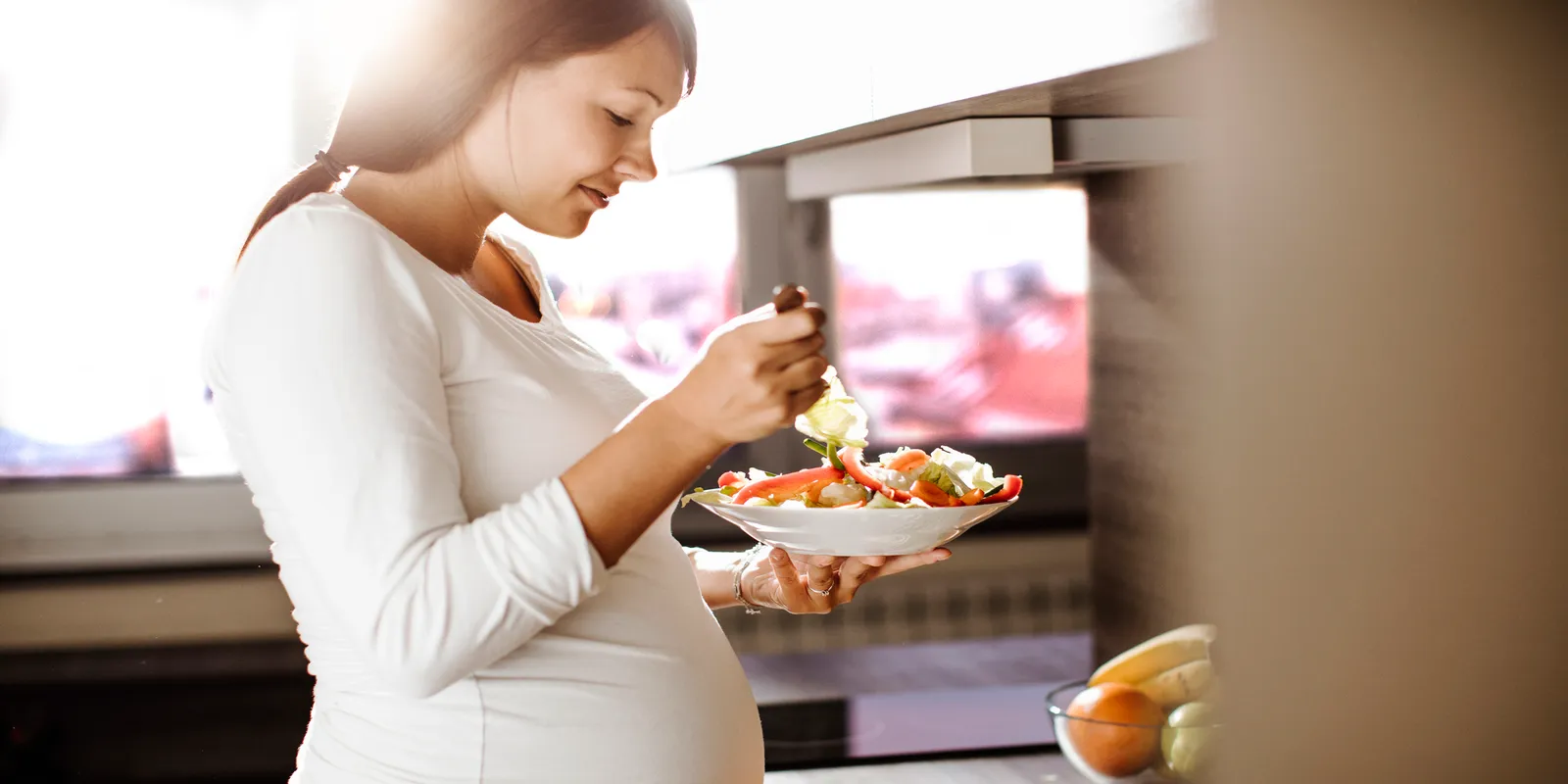Diet and nutrition is an important part of a pregnant woman’s health that needs to be taken care of properly. Making healthy food choices can be hard, especially if you’re a busy woman who wants to do things the easy way, like eat ready-made meals, buy processed foods, or eat at fast food places.
We all know that processed foods aren’t the best choice when it comes to living healthy, but sometimes we can’t avoid them because they’re everywhere. During pregnancy, the body’s nutritional needs go up, and if you don’t give your body healthy, nutritious food during this important time, you can increase your risk of pregnancy and delivery problems.
Making Your Food Healthier:
Making healthy food choices is the first step to making sure your pregnant body is getting the nutrition it needs. This is clear when you carefully choose the parts of your daily meals. Making your meals healthy will take work, especially if you already have bad cooking habits like using too much salt or fat when you cook.
By following these easy tips, you can get rid of your bad cooking habits and start making better ones:
- Cheese is an ingredient that we all love to eat, but when it’s used in cooking, the food is healthier if you use half as much. This way, you can still enjoy the dairy’s rich taste and get calcium and other nutrients, but with 50% less fat.
- Sugar is another item that pregnant women should eat less of, so make sure to use only 25% to 50% of the amount in the recipe. Cutting back on sugar will make your food less sweet, but it will still have a mild sweetness, which is good if you want to avoid getting gestational diabetes.
- Some cooks like to use their fingers a lot and find it very pleasant to use the salt shaker. But let me warn you that too much salt in the body can raise the risk of fluid retention and high blood pressure. So, just like with the other ingredients, it would be better if you cut the amount of salt you put in your food by half. Instead of adding more salt, you can also add spices to make your foods taste better. Spices are easy to find, and they not only add more taste, but some of them also have nutrients that are good for your baby’s growth and development.
- Make your meals more exciting by adding more spices and less salt, since salt isn’t really needed to make a dish taste good. Meats and vegetables taste better and are more interesting when they are seasoned with a range of spices. Your dish can have a stronger taste, but these are not too strong if you only use the right amount of spices. You can also use vinegar and fruit juices if you don’t have spices or don’t like the taste of spices.
- The basics of nutrition tell us that veggies are one of the best sources of vitamins, minerals, and dietary fiber, all of which are more important during pregnancy. So why not use the Earth’s many foods and feed them to your growing baby? Adding more veggies to a dish makes it healthier because it adds more nutrients. If a recipe calls for one medium-sized potato, adding two won’t hurt your pregnant body at all. Unlike other foods, vegetables are always a “Go” and never a “No,” so don’t feel bad about munching on your favorite veggies.
Conclusion:
It is more difficult for pregnant women to eat healthily and maintain their health than it is for other people. However, it is essential for the mother’s health as well as the health of the developing body of the baby for the mother to make educated and considered decisions regarding the foods that she consumes throughout pregnancy. Despite the fact that it may be tempting to go for processed foods that are simple to prepare, doing so might negatively impact the course of both pregnancy and labor. Women who are expecting can make their meals more nutritious and ensure they have all the necessary components for a successful pregnancy by making a few straightforward adjustments and adhering to a few straightforward guidelines.
FAQs
1. Why should pregnant women limit their salt consumption?
Pregnancy salt consumption can cause fluid retention and elevated blood pressure. Reduce salt in your meals and use spices and other flavor enhancers to maintain a healthy balance and avoid high sodium issues.
2. Why is pregnancy nutrition important?
Nutrition helps the mother and baby during pregnancy. Vitamins, minerals, and fiber boost fetal growth, decrease pregnancy problems, and improve mother health.
3. Can I eat healthier when pregnant?
Pregnancy requires thoughtful eating and improved cooking. Reduce cheese, sugar, and salt in meals, add spices for flavor without sodium, increase vegetable intake for nutrition, and try vinegar and citrus juices.
4. Are vegetables necessary during pregnancy?
Vegetables’ vitamins, minerals, and fiber are useful during pregnancy. They nourish the mother and baby, promoting growth. Vegetables boost nutrients and make pregnancy healthier.
5. Can pregnant women eat processed foods?
While full, nutrient-dense foods are preferred during pregnancy, processed foods may be eaten occasionally due to convenience or availability. To minimize dangers connected with processed food consumption, restrict their intake and choose healthier alternatives whenever possible.
